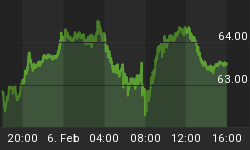We spoke of this issue several months ago and stated that we were possibly in the midst of a new trend. We no longer need to ponder about this anymore;we are, in fact witnessing a new trend.
The 1st groups of defaulters were individuals who were conned into buying houses at teaser rates and had a very hard time making payments when rates reset to market rates. The next group was individuals with decent to good credit; this group started to default because one or both members of the family lost their jobs, and therefore, they could no longer make payments on the mortgage.
Now we have the next wave; the strategic defaulters. This group's decision to default is based on cold logic. The value of the home of their homes has dropped so much that it no longer makes sense to make payments on a house that is trading well below market value.
"Strategic" defaults accounted for at least 12 percent of all defaults in February, up from about 4 percent in mid-2007, according to a recent Morgan Stanley (NYSE:MS - News) report. Analysts led by Vishwanath Tirupattur classified a default as strategic when a homeowner who hadn't previously been delinquent made an on-time mortgage payment one month; skipped payments for the next three months; and stayed current on other consumer debt of $10,000 or more. Full Story
In a way this it's payback time for the banks; the banks swindled millions of innocent homeowners when they turned a blind eye and even encouraged the sale of fraudulent mortgages via the liar loan application process. When the S**T hit the fan, these miserable banks came running to Washington and like faithful concubines, Washington bailed them out with taxpayer dollars. In effect these scoundrels were rewarded for their illegal activities. Note that notone banker has been jailed yet for the housing mess.
Wall Street has created an environment that promotes theft and fraud; the masses have now decided that it's times to give these chaps a taste of their own medicine. Note also that our Adult index clearly illustrates that morality as we know is now a thing of the past. If this new trend picks up steam, a massive wave of new defaults could hit the market, further souring an already weak real estate market. As they say you reap what you sow, the banks have sowed crap, so they are going to reap even more crap.
Conclusion
Housing analysts say strategic defaults mainly occur when a home's value has dropped below the balance remaining on the mortgage. A homeowner in that position may decide that continuing to make payments is throwing money away, or may default to get the lender to modify the loan. All told, borrowers who aren't making mortgage payments are probably skipping roughly $100 billion annually, an amount equal to 1 percent of consumer spending, according to Mark Zandi, chief economist at Moody's Economy.com. Zandi likens the money to "a form of stimulus, a little tax cut." Full Story
Zillow.com states that one in five U.S. homes with a mortgage has "negative equity" so the number of potential strategic defaulters is rather huge; what we have on our hands is a ticking time bomb and purchasing real estate nowis one of the dumbest moves an investor could make.
Long term the trend for housing is still down. Individual that are bearish can use strong rallies to short stocks in the housing sector such as LEN, BZH, etc. ETF players can open up positions in REK, SRS, and if you really want to take an aggressive position you can short via Direxion's DRV. SKF is another option; it is an ETF that shorts the financial sector
Here is another fact to consider. Many of the chaps who are opting to strategically default understand that most banks are reluctant to foreclose immediately on homes that had a value of over 300,000. The higher the value, the less reluctant the banks are to foreclose. The reason is simple. Once they foreclose, they can no longer lie and pretend that the house is worth 500,000, they now have to register the true value of the house and in most cases it is significantly lower than the existing mortgage. If they did this to all their properties the profits they are now claiming would drop significantly or completely vanish. In most cases banks wait up to 2 years to foreclose. In that time, a person could save a significant amount of money as they would be living rent free and that's another reason why so many are choosing to strategically default.















